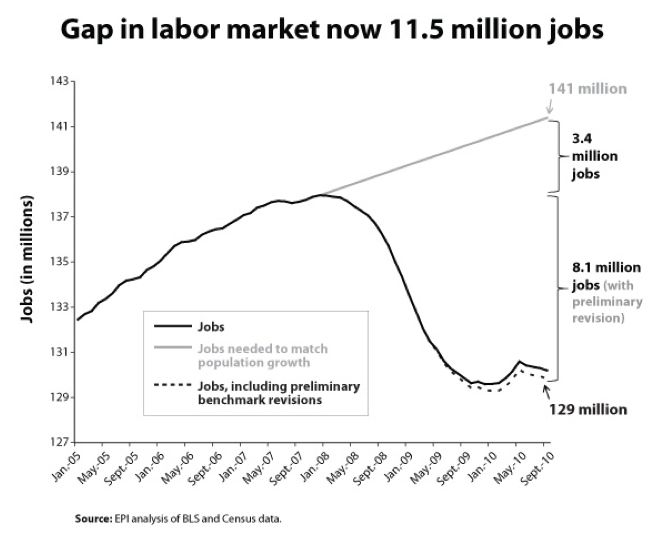I think that in general Google is virtually a perfect company, with this search engine flaw described below (which has only relatively recently become a significant problem) the only substantial flaw I am aware of. Moreover, due to the sheer number of sites, it may not be possible for Google to solve the problem described below without creating new problems for the huge number of people who depend on or who prefer the older, high traffic sites.
If changing the main search engine is impossible, what I would most like to see is for Google to develop an alternative search engine where newer sites with great content but with few links to them would come up high in the search results.
Someone was very dubious about an article at Common Dreams (link at the bottom)....
GUEST COMMENT
katsteevns January 14th, 2010 6:49 pm
"the vast majority of American's are totally clueless, including the author of this article"
Does Common Dreams let just anyone publish? How does that work?
UNITY PROGRESS
The internet and all neighborhoods in it (including the progressive hood) is basically one giant, multi-division good old boy network. Most of the sites which get significant traffic are ones that started in the 1990's. Back then, everyone used to link to everyone else.
Today the 1990's sites generally do not link to new sites although there are a few exceptions. For one thing, the sheer explosion of sites since 2000 make it impractical for the high traffic, established 1990's sites to link to newer sites without hopelessly cluttering their page. Moreover, why should the established sites make it easier for new sites to encroach on their traffic by linking to them? They would be shooting themselves in the foot if they did link to newer sites.
Google decided back then (and has never changed) to use number of links to a site as the primary determinant of how high in search results a site will be. Sites started since 2000 and especially since 2005 don't get a competitive number of links to them, so they generally do not appear anywhere in the first few pages of search results. So then they don't get much traffic (unless the author is very well known).
Google’s search engine results have become stale because year after year they primarily preserve the traffic status quo. Every year, mostly the same 1990's vintage sites appear on the first page of search results, whereas sites started after 2000 do not. With the Google system, every year it becomes closer and closer to impossible for a brand new site to gain traffic, unless the authors of it are very well known.
What all this means is that mostly authors connected with sites started in the 1990's are published at Common Dreams (along with famous authors not necessarily connected with any single site). The universe of authors in this category is ultimately limited. Authors connected with newer sites and/or with sites with little traffic are not published by most progressive sites. The most notable exception is opednews.com, which will publish authors who are not published elsewhere.
GUEST COMMENT TWO
qatzelok January 15th, 2010 10:23 am
Thank you for explaining how this pollyannish article made it onto Common Dreams.
How is it possible to write an article about "How America can help" when its military is still there fighting against socialism?
GUEST COMMENT THREE (SAME AUTHOR AS GUEST COMMENT ONE)
katsteevns January 14th, 2010 9:17 pm
Thank you for that ! I thought searches were brought up according to the date they were posted, but maybe I am wrong.
UNITY PROGRESS
Google recently installed options for search results, but they are misleading and don't do what you might think they do. If after you do a search you then click "show options" and then you click "latest," you get only one page of results: just 10 items. It seems virtually inevitable that even in those mimimal listings there is again heavy bias toward the 1990's sites, although technically the bias would be a little less due to the strict time ordering.
But new sites and sites that don't get much traffic most likely don't ever appear even on the latest results search, although I am going to investigate that.
If within the time options you click "last 24 hours" or one of the other short time frames, the results are indeed postings from the last 24 hours and there are multiple pages, but (a) they are not in time order but are in "Google priority order" and (b) there is definitely the same heavy bias toward the 1990's vintage sites that you see in the ordinary results.
There is a separate Google blog search where you can order results by time and where there is far less bias toward older sites. But the Google blog search is limited to true blogs only, and for that reason and because it is not shown on the main Google page it is used by only a very, very small fraction of those who use the regular search.
Someone needs to make a search engine that is biased toward new sites to offer a real alternative to the increasingly stale Google results.
The above was in response to this article at Common Dreams.






No comments:
Post a Comment